- Home
- Roy J. Snell
On the Yukon Trail Page 11
On the Yukon Trail Read online
Page 11
CHAPTER XI A MOVING SPOT ON THE HORIZON
But the outlaw's teams of powerful dogs had endurance to exceed anythingever before witnessed by those who followed on their trail. Even Jenningswas astonished by the manner in which they ate up the miles.
"Those dogs are devils!" he exclaimed after ten days of trailing them."Devils is what they are and the prince of devils is their driver."
Straight north the trail ran. There could be no mistaking it. In the softsnow of the forest, as Jennings had said, it might have been followedafter three months had elapsed just as surely as on the day after it wasmade.
Up frozen streams, over ridges when streams were too rapid to freeze evenin midwinter, down narrow Indian trails when snow-laden branchesconstantly showered the traveler with snow, the trail led. On and on andon. Always, as nearly as possible, due north.
At night, camp made and supper over, Curlie, his instruments before him,his receiver over his head, always sat on his sleeping-bag. With armscrossed over his feet, with head dropping forward, like Jack London'sprimitive man, he listened for sounds. The sounds he expected to hearwere from the air, not from the forest; that was the only difference.Otherwise he was that same primitive man, hunting and being hunted inturn. He was ever pursuing the outlaw, but who could tell when this sameoutlaw might face about upon the trail and become himself the hunter?
So they moved forward. Once Curlie received a thrill. On examining a camplately deserted by the one who went before, he came upon a strangefootprint, a single print of moccasin or skin-boot in the snow. Yet howit made his heart beat! This footprint was much smaller than that of theoutlaw. Could this be the Whisperer? At first it seemed to him that therecould be but one answer: "It is." But at that time they were not beyondthe creeks and rivers inhabited and traveled by Indians. Two Indian sledshad not long since passed that way. Might it not be that some Indianwoman or girl had visited the camp of the outlaw? So Curlie's certaintywas destroyed, yet he still had a feeling that this might have been thefootprint of the Whisperer.
Nothing more came to him from the air. The outlaw was silent. So too wasthe Whisperer. Night after night he caught only now and again a fragmentof some song or some orchestra production being broadcasted thousands ofmiles away. Now and again there would come fragments of messages fromafar, but never anything of importance.
From the air they learned nothing of the position of the outlaw, but byexamining the signs of camp and trail Jennings, long accustomed to thesesigns, was able to announce to them each night that they were drawingcloser, ever nearer to the man they sought. Now they were three days'journey from him; now two, now one and a half, now only one. Faint andfar distant they fancied they caught sight of the column of smoke risingstraight above the forest from his camp fire.
Food became scarce. They had bought dried fish from the last Indian campthey had come upon. Now this had to suffice for both men and dogs. Theoutlaw, they knew by signs of the trail, had been more fortunate. Once, areindeer straying from some distant domestic herd had forfeited life bycrossing his path; at another time a caribou doe and her fawn had fallenvictim to his rifle.
"It's tough luck," Jennings had exclaimed. "Him with all that fresh meatand us with none; but the tables will turn. We're gaining, gaining everyday. The soft trail for him becomes hard for us, after the night'sfreeze. You'll see, we'll get him yet."
"But where do you think he's heading for?" Joe demanded.
"Can't tell," Jennings scratched his head. "Maybe some Eskimo village,maybe some reindeer camp and maybe--did you say Munson had a supply campsomewhere?"
"Yes."
"Well, maybe he's heading for that."
"To use it or destroy it?"
"Destroy it?" Jennings stared at him in astonishment. "What would be thesense of destroying it? He doesn't know he's being followed; leastwise, Idon't think he does. Who'd think of destroying a winter's supply of grub?It wasn't Napoleon who burned Moscow, was it?"
Joe did not answer, but he and Curlie had their own private notions aboutthe matter.
Then, just as they hoped to be closing in upon the prey, two thingshappened which postponed that great event for many days. They camesuddenly out upon the open tundra, where the snow was hard-packed by thewind, where the trail was difficult to follow, and where, with as good atrail as the boys had to follow, the soft snow no longer gave them theadvantage and the outlaw could make as good time as they--probablybetter, for his dogs were stronger.
"Bad luck to us," Jennings stormed. "We'll have to follow him straight tothe Arctic and us with no food but a dozen pounds of fish. If we don'twatch out we'll be in full retreat, eating our dogs as we go."
Curlie, who had been sitting on his sled silently watching something inthe distance, suddenly leaped to his feet exclaiming:
"It moves!"
"What does?" demanded Joe.
"Something off there to the left."
"Think it's him?"
"Who?"
"The outlaw."
"No, I don't. What I do think though is that it's a reindeer or caribou."A moment later he ordered: "Make camp right here. We've got to have meatand this is our chance."
Looking to the clip in his rifle, he turned to go, then, after a second'sreflection he turned back, partly unpacked the sled and, having draggedout a strange-looking belt, buckled it on beneath his mackinaw.
"Just by way of extra precaution," he smiled.
Atop the nearest ridge he turned to wave his hand. Had he known whatevents would transpire before he saw his companions again he would mostsurely have turned back. Not knowing, he shaded his eyes for a momentonce more to locate the moving spot on the horizon, then went strollingdown the low hill.

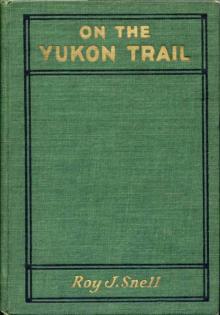 On the Yukon Trail
On the Yukon Trail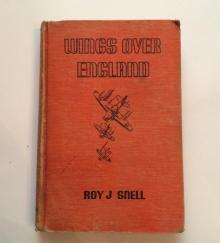 Wings over England
Wings over England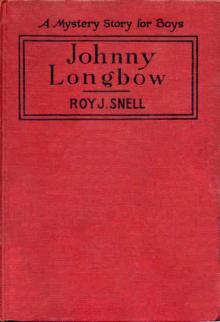 Johnny Longbow
Johnny Longbow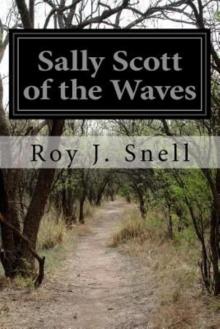 Sally Scott of the WAVES
Sally Scott of the WAVES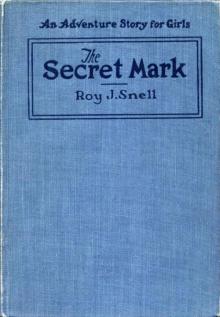 The Secret Mark
The Secret Mark Betty Leicester's Christmas
Betty Leicester's Christmas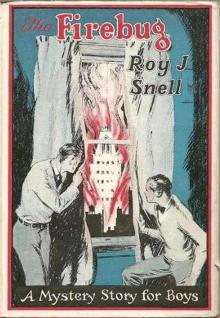 The Firebug
The Firebug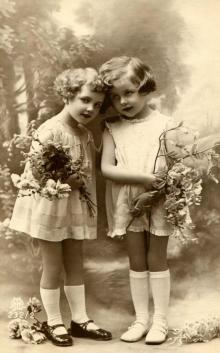 Minnie Brown; or, The Gentle Girl
Minnie Brown; or, The Gentle Girl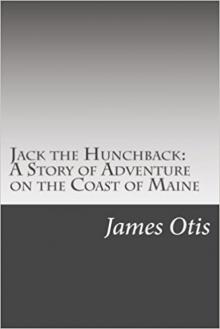 Jack the Hunchback: A Story of Adventure on the Coast of Maine
Jack the Hunchback: A Story of Adventure on the Coast of Maine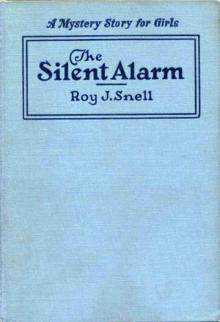 The Silent Alarm
The Silent Alarm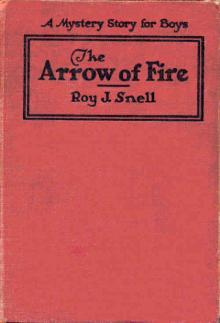 The Arrow of Fire
The Arrow of Fire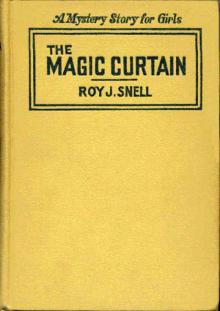 The Magic Curtain
The Magic Curtain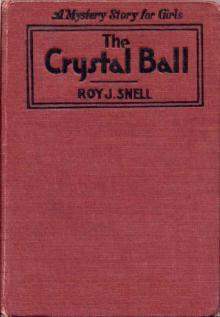 The Crystal Ball
The Crystal Ball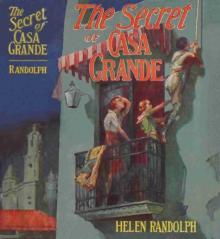 The Secret of Casa Grande
The Secret of Casa Grande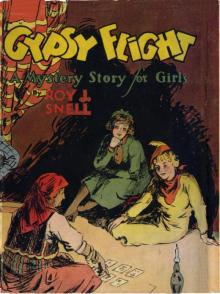 Gypsy Flight
Gypsy Flight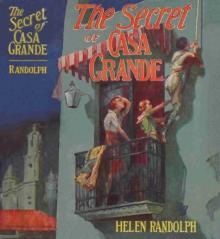 The Mystery of Carlitos
The Mystery of Carlitos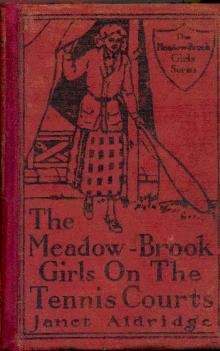 The Meadow-Brook Girls on the Tennis Courts; Or, Winning Out in the Big Tournament
The Meadow-Brook Girls on the Tennis Courts; Or, Winning Out in the Big Tournament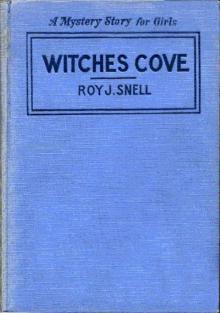 Witches Cove
Witches Cove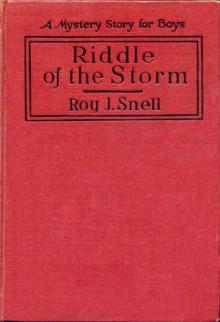 Riddle of the Storm
Riddle of the Storm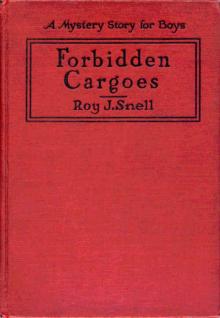 Forbidden Cargoes
Forbidden Cargoes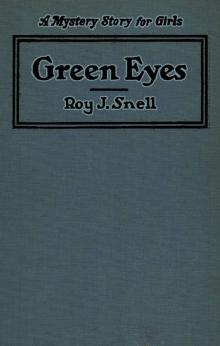 Green Eyes
Green Eyes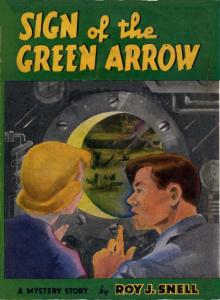 Sign of the Green Arrow
Sign of the Green Arrow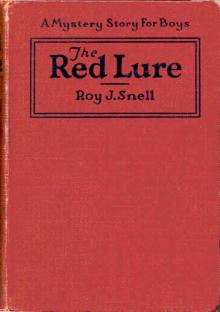 The Red Lure
The Red Lure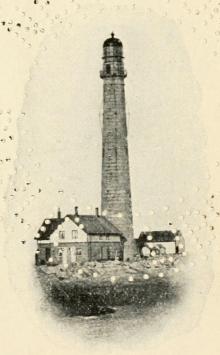 The Light Keepers: A Story of the United States Light-house Service
The Light Keepers: A Story of the United States Light-house Service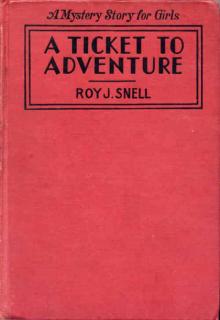 A Ticket to Adventure
A Ticket to Adventure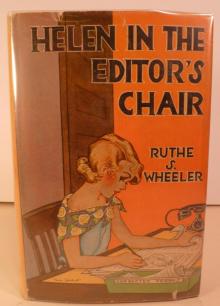 Helen in the Editor's Chair
Helen in the Editor's Chair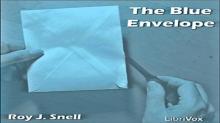 Blue Envelope
Blue Envelope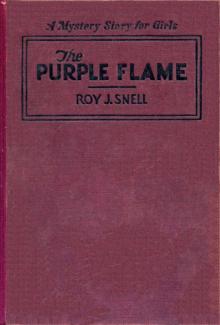 The Purple Flame
The Purple Flame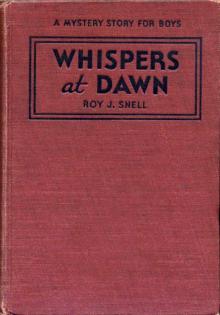 Whispers at Dawn; Or, The Eye
Whispers at Dawn; Or, The Eye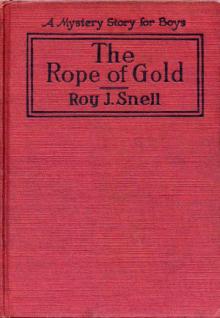 The Rope of Gold
The Rope of Gold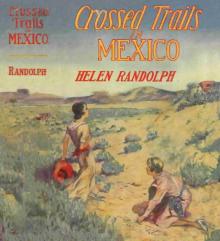 Crossed Trails in Mexico
Crossed Trails in Mexico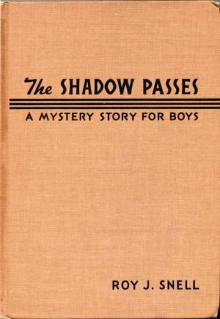 The Shadow Passes
The Shadow Passes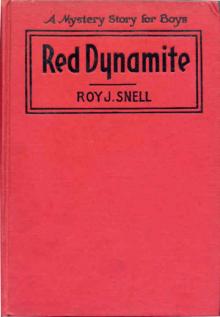 Red Dynamite
Red Dynamite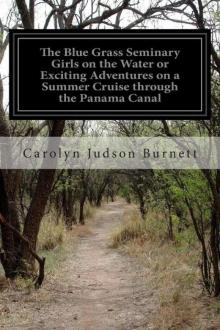 Blue Grass Seminary Girls on the Water
Blue Grass Seminary Girls on the Water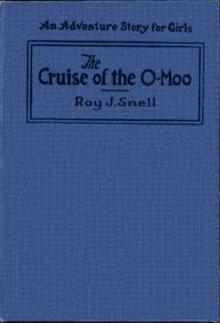 The Cruise of the O Moo
The Cruise of the O Moo